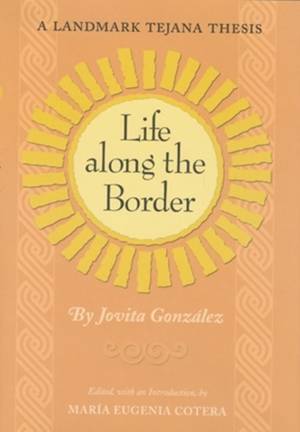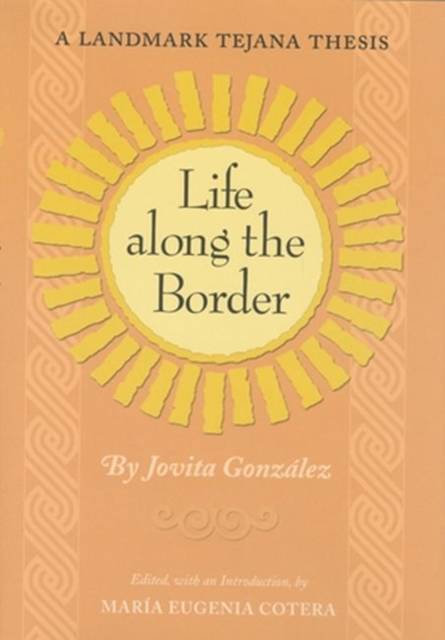
- Retrait gratuit dans votre magasin Club
- 7.000.000 titres dans notre catalogue
- Payer en toute sécurité
- Toujours un magasin près de chez vous
- Retrait gratuit dans votre magasin Club
- 7.000.000 titres dans notre catalogue
- Payer en toute sécurité
- Toujours un magasin près de chez vous
Description
One of the foundational documents of Mexican American history in Texas is a master's thesis written in 1929 at the University of Texas. It has never before been published. A woman, a folklorist, and a member of an ethnic minority in an era of Anglocentrism, Jovita González created a study that has served as source material on the Texas-Mexican Borderlands for more than seventy-five years. Editor María Eugenia Cotera presents it in its full context and with annotations helpful to contemporary readers.When González decided to pursue a master's degree in history, she was already the vice-president and president-elect of the Texas Folklore Society. Despite her status in the Texas Folklore Society, González wrote a defiant master's thesis that offered a competing vision of Texas history and culture to that promoted by the founding fathers of Texas folklore. Her complex analysis de-emphasizes the role of the Texas Revolution as a foundational moment of Texas history and explores the ways in which Anglos and Mexicans developed tense ties through intermarriage and political alliance in the fifty years following the U.S.-Mexico War. In an important chapter on Border politics, González offers the first Tejana analysis of the League of United Latin American Citizens (LULAC), casting a wary eye on its all-male leadership. While her prescient observations foreshadowed recent feminist critiques of patriarchal political formations, her analysis of Texas history elegantly counters the "rhetoric of dominance" of the established historians of the American West of her time.González's carefully researched and socially nuanced thesis will now be available for a wider reading public, for scholars in their own libraries, and for those who value a Tejana legacy that presents the borderlands as a crucible in which a new kind of identity is being formed.
Spécifications
Parties prenantes
- Auteur(s) :
- Editeur:
Contenu
- Nombre de pages :
- 144
- Langue:
- Anglais
- Collection :
- Tome:
- n° 26
Caractéristiques
- EAN:
- 9781585445219
- Date de parution :
- 07-09-06
- Format:
- Livre relié
- Format numérique:
- Genaaid
- Dimensions :
- 140 mm x 218 mm
- Poids :
- 340 g







